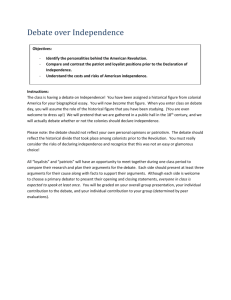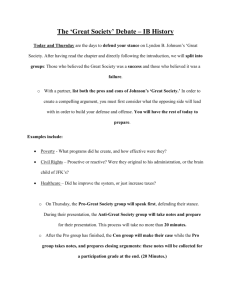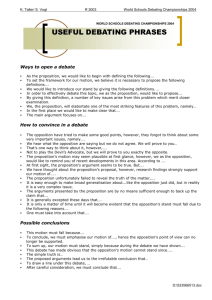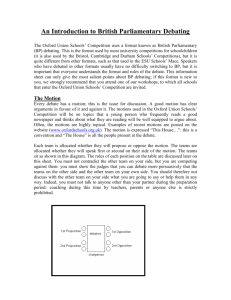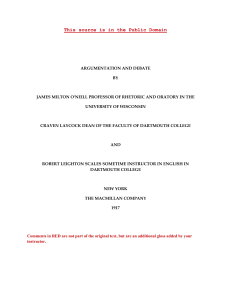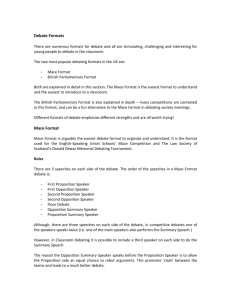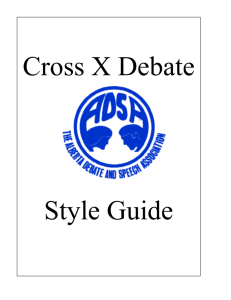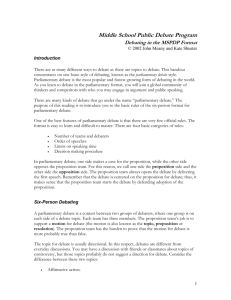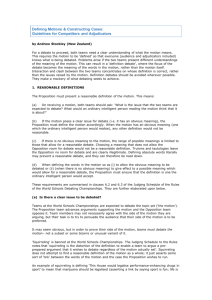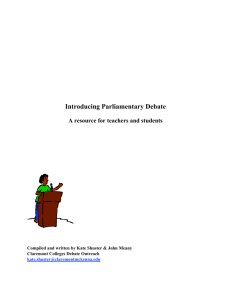Debate terminology
advertisement
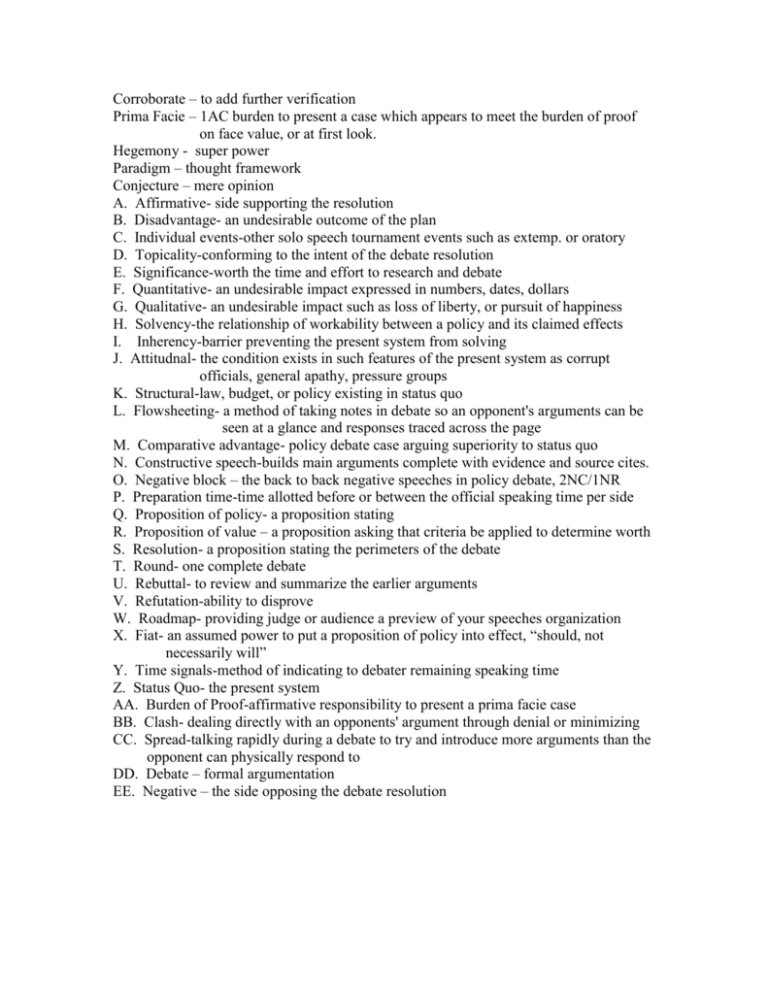
Corroborate – to add further verification Prima Facie – 1AC burden to present a case which appears to meet the burden of proof on face value, or at first look. Hegemony - super power Paradigm – thought framework Conjecture – mere opinion A. Affirmative- side supporting the resolution B. Disadvantage- an undesirable outcome of the plan C. Individual events-other solo speech tournament events such as extemp. or oratory D. Topicality-conforming to the intent of the debate resolution E. Significance-worth the time and effort to research and debate F. Quantitative- an undesirable impact expressed in numbers, dates, dollars G. Qualitative- an undesirable impact such as loss of liberty, or pursuit of happiness H. Solvency-the relationship of workability between a policy and its claimed effects I. Inherency-barrier preventing the present system from solving J. Attitudnal- the condition exists in such features of the present system as corrupt officials, general apathy, pressure groups K. Structural-law, budget, or policy existing in status quo L. Flowsheeting- a method of taking notes in debate so an opponent's arguments can be seen at a glance and responses traced across the page M. Comparative advantage- policy debate case arguing superiority to status quo N. Constructive speech-builds main arguments complete with evidence and source cites. O. Negative block – the back to back negative speeches in policy debate, 2NC/1NR P. Preparation time-time allotted before or between the official speaking time per side Q. Proposition of policy- a proposition stating R. Proposition of value – a proposition asking that criteria be applied to determine worth S. Resolution- a proposition stating the perimeters of the debate T. Round- one complete debate U. Rebuttal- to review and summarize the earlier arguments V. Refutation-ability to disprove W. Roadmap- providing judge or audience a preview of your speeches organization X. Fiat- an assumed power to put a proposition of policy into effect, “should, not necessarily will” Y. Time signals-method of indicating to debater remaining speaking time Z. Status Quo- the present system AA. Burden of Proof-affirmative responsibility to present a prima facie case BB. Clash- dealing directly with an opponents' argument through denial or minimizing CC. Spread-talking rapidly during a debate to try and introduce more arguments than the opponent can physically respond to DD. Debate – formal argumentation EE. Negative – the side opposing the debate resolution




